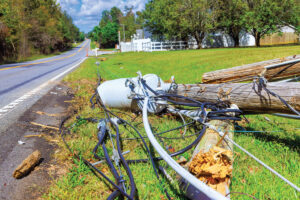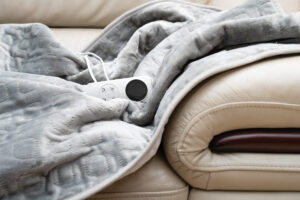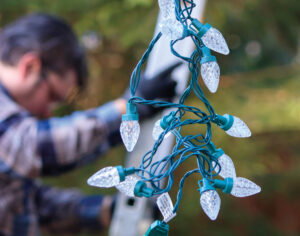This year marks the 100th anniversary of the National Fire Protection Association’s Fire Prevention Week, held Oct. 9-15. While Smokey the Bear works to prevent forest fires, at Safe Electricity, we work to prevent accidents associated with electricity.
Safe Electricity offers the following tips in different areas in your home to help find possible issues with your electrical system or appliances before they become a fire hazard. Remember, only you can prevent home electrical fires.
Electrical outlets
Check for loose-fitting plugs and loose wall receptacles. Replace missing or broken wall plates. If you have young children, install tamper resistant outlets (TROs). Avoid overloading outlets with adapters and too many appliance plugs.
Electrical wiring
If an outlet is not working, it may be an indicator of unsafe wiring. Have an electrician check it out. Also check for loose wires and loose lighting fixtures. Listen for popping or sizzling sounds behind walls. If light switches are hot to the touch or lights spark and flicker, immediately shut them off at the circuit breaker and contact a qualified electrician to make repairs.
Ground Fault Circuit Interrupters (GFCIs)
Make sure GFCIs are installed in your kitchen, bathrooms, laundry,
workshop, basement, garage and outdoor outlets. GFCIs help protect against electrical shock. Use the test and reset button monthly to ensure they are working properly.
Arc Fault Circuit Interrupters (AFCIs)
Consider having AFCIs installed in your home. An AFCI installed in a circuit breaker monitors the flow of electricity throughout your home. If the AFCI detects any abnormality, it will shut the system off, preventing a fire.
Plugs
Do not remove the grounding pin (third prong) to make a plug fit a two-conductor outlet.
Cords
Make sure cords are not frayed or cracked, placed under rugs, tightly wrapped around any object, or located in high traffic areas. Do not nail or staple them to walls, floors or other objects.
Extension cords
These are not intended as permanent household wiring, so use them on a temporary basis only. If you find you need more electrical outlets, talk to an electrician about installing more so you will not need to use extension cords.
Light bulbs
Verify that your light bulbs are the intended wattage for the lamp or fixture they are in, and make sure they are screwed in securely so they do not overheat.
Appliances and electronics
If an appliance repeatedly blows a fuse, trips a circuit breaker, or has given you an electrical shock, immediately unplug it and have it repaired or replaced. Use surge protectors to protect expensive electronics. Make sure your appliances and electronics are placed in dry locations. If an appliance has been water damaged, be sure to replace it.
Circuit breakers and fuses
Check that circuit breakers are working properly. Fuses should be properly rated for the circuit they are protecting.
Service capacity
If fuses blow or trip frequently, you may need to increase the capacity of your electrical service or add new branch circuits. Contact a qualified electrician.
For more information on electrical safety in your home, visit SafeElectricity.org.









